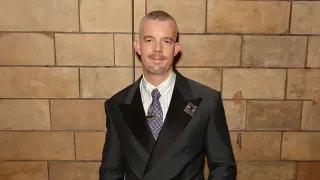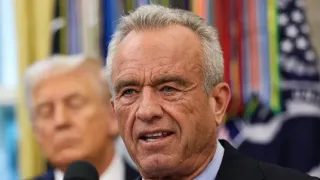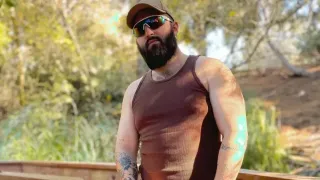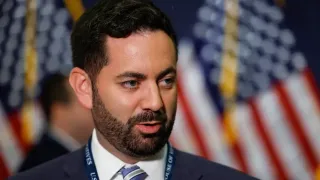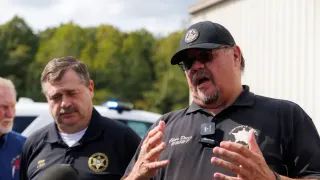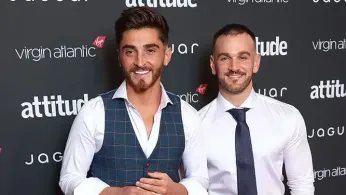
3 hours ago
Josh Cavallo Says Soccer Still Faces ‘Mountains’ of Homophobia, Urges Deeper Change
READ TIME: 4 MIN.
Josh Cavallo’s decision in 2021 to come out as gay while playing for Adelaide United in Australia was a watershed moment for men’s professional football, making him the first active top-flight male player to be openly gay in decades . The announcement was met with widespread support from his club, teammates, and international footballing figures, signaling hope for a new era of inclusion . Yet, as Cavallo has candidly revealed in recent interviews, the reality for LGBTQ+ footballers remains fraught with hostility and prejudice.
In a powerful discussion on the Footballers Unfiltered podcast, Cavallo described the “toxic” environment that persists within the sport, despite the progress his own coming out seemed to represent . “There’s multiple, multiple, multiple death threats that come my way daily still, and it’s quite sad to see,” Cavallo said, illustrating the severity of the abuse directed at openly LGBTQ+ players . He explained that such negativity and pressure make it profoundly difficult to encourage other players to come out, as the consequences can be overwhelming: “It brings all this attention, it brings all this pressure, brings all this negativity that will affect their game in the long run” .
Cavallo’s experiences are not limited to online abuse. He recounted instances of homophobic chants and insults from crowds during matches, underscoring the entrenched nature of discrimination in football culture . “It makes me feel horrible. It honestly cuts really deep inside me because it’s something that I’ve worked so hard on for myself and fought for the world of football to take a step forward in,” Cavallo told ITV News . He highlighted that such abuse does not only affect him but also impacts others nearby, including children and fellow fans, perpetuating a wider culture of intolerance .
Despite these challenges, Cavallo has spoken about the importance of support from his club and close circles. He described how having a strong support network has enabled him to “put up a wall” to protect himself from the worst of the abuse . Nonetheless, the toll on his mental health and the additional pressures of being a visible LGBTQ+ figure in an often hostile environment remain significant.
Cavallo expressed a wish that he had come out earlier, stating that living authentically brought personal relief and empowerment, despite the negativity that followed . “I was tired of being hidden and tired of having to go around and hide from people and not live my authentic self,” he said, emphasizing the personal stakes involved in public visibility .
Cavallo’s recent move to the English National League North side Peterborough Sports in July 2025 was driven not just by athletic opportunity, but by his search for an environment where he could be comfortable and thrive as an out gay man . He noted that even now, clubs must take special precautions to protect him from abuse during matches, including direct lines to local police and rapid response protocols for incidents of homophobia .
Reflecting on the broader climate, Cavallo warned that men’s football appears to be “going backwards” in its efforts to foster inclusion and acceptance. “It’s quite sad to see that actually people are getting praised to say something negative about the LGBTQ+ community… it is a difficult time in sort of that sense for change to happen,” he said . He remains committed to being visible for the next generation, stating that if his openness encourages just one more LGBTQ+ young person to feel safe in football, it will have been worth the effort .
Cavallo’s historic announcement in 2021 was the first of its kind since Justin Fashanu came out in 1990, a move that led to severe backlash and isolation for Fashanu . Since Cavallo’s coming out, other players such as Jake Daniels in the UK have followed, citing Cavallo’s courage as an inspiration . However, the extremely small number of openly LGBTQ+ male footballers at the professional level underscores the ongoing risks and barriers.
Advocacy groups and sporting organizations continue to call for stronger measures to combat homophobia in football. These include education programs, more robust reporting and disciplinary procedures for abuse, and visible support from clubs and leagues. Some progress has been made, particularly in women’s football and among fan-led initiatives, but the men’s game remains a challenging environment for many .
Cavallo’s story is emblematic of both the progress made and the significant challenges that remain for LGBTQ+ inclusion in sport. In March 2024, he proposed to his partner, Leighton Morrell, on the pitch at Coopers Stadium, publicly celebrating his relationship and thanking Adelaide United for their unwavering support . Such moments signal hope and visibility, but Cavallo’s warnings about “mountains” of homophobia make clear that football’s journey toward acceptance is far from complete.
For now, Cavallo continues to use his platform to advocate for change, support others in the LGBTQ+ community, and call on football at all levels to take meaningful action against homophobia. His message is simple but urgent: visibility must be matched by safety, support, and genuine acceptance.

